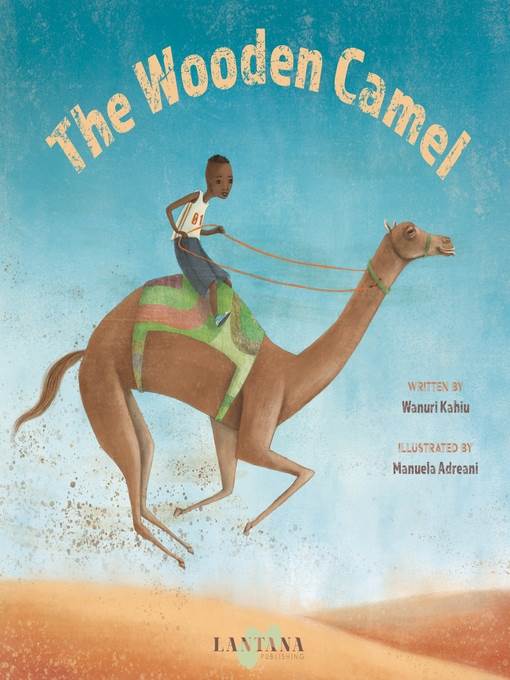
The Wooden Camel
فرمت کتاب
ebook
تاریخ انتشار
2020
Lexile Score
590
Reading Level
0-2
ATOS
3.2
Interest Level
K-3(LG)
نویسنده
Manuela Adreaniناشر
Lantana Publishingشابک
9781911373216
کتاب های مرتبط
- اطلاعات
- نقد و بررسی
- دیدگاه کاربران
نقد و بررسی

August 28, 2017
A boy dreams of racing camels in Kenyan filmmaker Kahiu’s bittersweet story, which features the Turkana people of northwest Kenya. Etabo’s older siblings tease him for his goal (“He’s too small to race camels”), and he suffers another setback when his father sells their camels in order to afford water. The companionship of a favorite goat, Keti, helps Etabo keep up his spirits, and he prays to Akuj, the Sky God, for help twice. The deity’s response is always the same: “Your dreams are enough.” Delicate pencil outlines combine with gauzy washes of color in Italian illustrator Adreani’s sweeping grasslands; despite the family’s struggles, Etabo’s resilience comes through in playful scenes where he rests in an acacia tree with Keti, “daydreaming about racing camels,” and attempts (unsuccessfully) to ride various uncooperative animals: “Chickens... Cats... And even Keti.” Etabo’s daydreams gain a new outlet after his sister carves him wooden camels to race in his imagination. It’s a simple act that allows Etabo’s dreams to thrive—readers can imagine where that nurtured hope might take him in the future. Ages 4–8.

July 15, 2017
A Kenyan Turkana boy's dreams of racing his family's camels suffer when his father sells them because of the rising price of water.Etabo and his siblings tend the family's goats until another water price hike sends the older ones off to find work. Tending the goats alone, Etabo daydreams about racing camels. He even tries riding chickens, cats, and the stubborn goat Keti. When Etabo implores Akuj the Sky God for help, the answer returns: "Your dreams are enough." His sister Akiru, observing Etabo's increasing unhappiness, whittles him a gift of three wooden camels. The toys fuel Etabo's imaginative play and prompt nighttime dreams of winning a camel race. Akiru's kindness fuels Etabo's release from his frustrated desires, engendering imaginative play that's right-sized for both his development and his family's situation. Kenyan filmmaker Kahiu's telling is simple and straightforward. She infuses the narrative with details from Etabo's daily experiences, from the acacia tree where he rests to Akuj, to whom he prays. Italian illustrator Adreani's mannerist pictures feature humans and animals with ultrathin limbs and delicate, stylized features. Akiru wears traditional beaded necklaces and silver earrings. Her sweet gift and Etabu's appreciative hug are poignantly depicted. This empathetic look at a Turkana boy's deferred dreams and a family's struggle for a resource taken for granted by most American children strikes an important chord for families. (Picture book. 4-7)
COPYRIGHT(2017) Kirkus Reviews, ALL RIGHTS RESERVED.

























دیدگاه کاربران